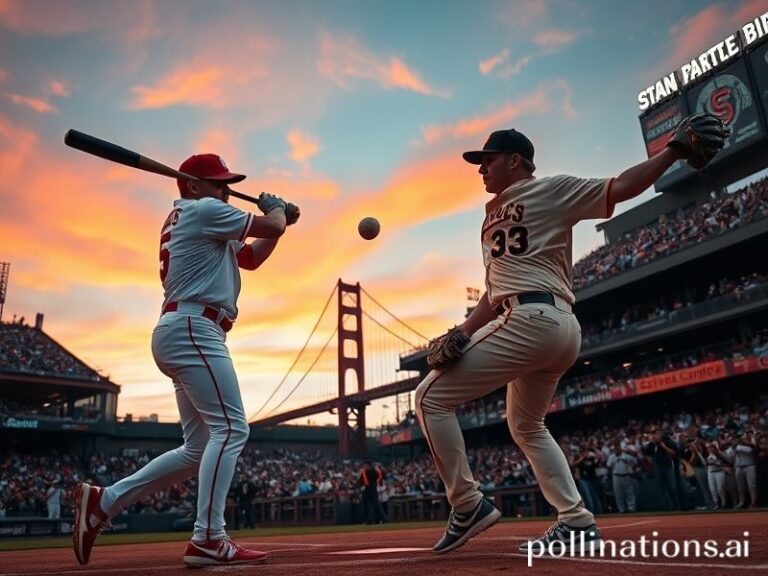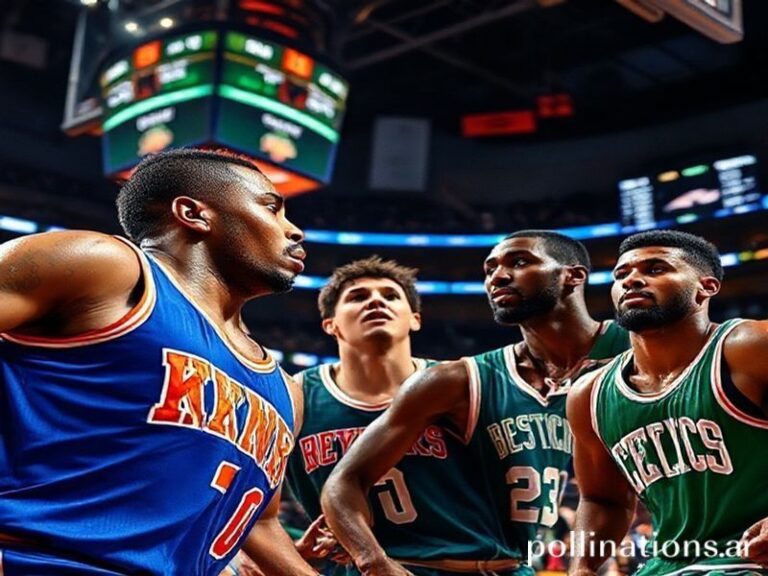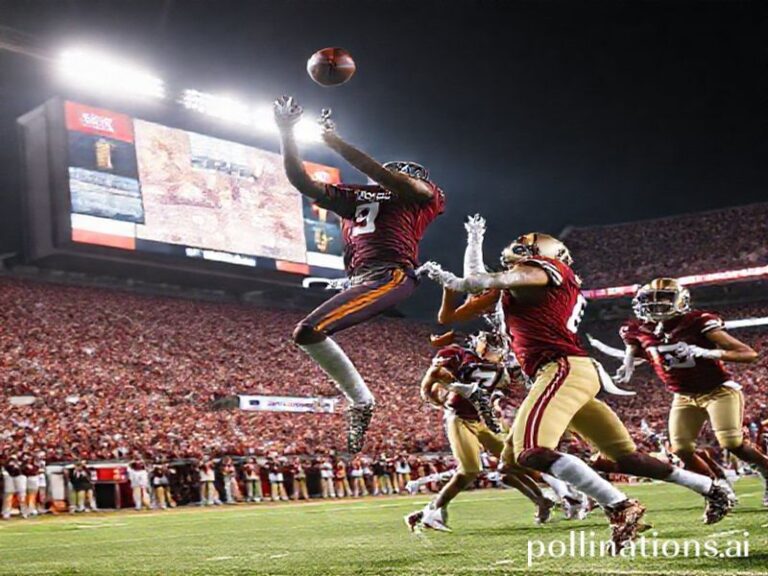Yankees vs. Blue Jays: A Late-Capitalist Proxy War in Nine Innings
The Bronx Meets the Six: A Proxy War for the Post-American Century
By “Our Man in the Cheap Seats” – Foreign Correspondent, Dave’s Locker
TORONTO—On paper, last night’s tilt between the New York Yankees and the Toronto Blue Jays was merely the 2,047th regular-season meeting of two AL East neighbors who pretend to despise each other the way siblings pretend to hate sharing a Netflix password. In practice, it was a geopolitical Rorschach test with peanuts and Cracker Jack. From the upper deck of the Rogers Centre—where the retractable roof stayed closed to keep out both the rain and any lingering optimism—one could watch the latest micro-drama of American hegemony unfold in cleats and polyester.
Consider the uniforms: the Yankees, still sporting the imperial pinstripes first stitched when Wilson was weighing the merits of the League of Nations; the Blue Jays, wearing red maple leaves that look suspiciously like a NATO roundel. One franchise carries the baggage of 27 World Series titles, the other the baggage of trying to explain 1994 to anyone under 30. On the field, Aaron Judge’s moon-shot home runs land like unsolicited IMF loans—loud, impactful, and ultimately leaving the recipient wondering who really owns the ballpark. Meanwhile, Vladimir Guerrero Jr., heir to a Dominican baseball dynasty now franchised in Canada, swings with the nonchalant authority of a man who knows his passport lets him shop duty-free in three countries.
The crowd told the rest of the story. In the pricey seats behind home plate, Bay Street currency traders in Patagonia vests discussed leveraged positions while glancing at the scoreboard the way traders eye the yuan. Two rows up, a trio of Michigan tourists livestreamed the game to TikTok, their phone cases bedazzled with slogans like “Make Baseball Imperial Again.” Somewhere in between, a lone Norwegian cruise passenger asked if this was the same sport as cricket, then bought a $17 Molson to drown the disappointment. The global village, it turns out, smells overwhelmingly of garlic fries and regret.
Scattered among them were the new vassals of sport: South Korean tech scouts scribbling spin-rate data into encrypted apps; Venezuelan buscones FaceTiming prospects back in Caracas; and a solitary British journalist trying to file copy on deadline while Googling “what is a balk.” Each saw in the contest a different metaphor. The scouts saw future Samsung sponsorships. The buscones saw escape velocity. The journalist saw lunch.
In extra innings—because the universe loves unpaid overtime—the Yankees executed a textbook sacrifice bunt, a tactic now as antiquated on the world stage as détente. The Jays answered with a sprint-speed stolen base, proving that even in the age of analytics, brazen theft retains bipartisan support. When the final out was recorded at 12:07 a.m., the scoreboard read 5-4, but the real tally was subtler: American cultural capital 1, Canadian politesse 0, global sleep deficit incalculable.
Outside, the CN Tower’s LED lights pulsed victorious blue, a beacon visible to the U.S. Customs drones that patrol Lake Ontario like bored mall cops. Commuters queued for the last UP Express train, their faces illuminated by phone screens broadcasting postgame commentary in four languages and one universal dialect of despair. Somewhere in the scrolling chyron, one could spot the overnight currency shift: the loonie dipped 0.002% against the dollar, proof that even fractional heartbreak has a forex ticker.
And so the rivalry endures, not because anyone truly cares whether Gerrit Cole’s slider tilts at 2,531 rpm or 2,532, but because the world still needs a nightly reminder that empires don’t collapse; they just get traded for prospects to be named later. The Yankees will fly south at dawn, secure in the knowledge that tomorrow’s headlines will still spell “center” without the pretentious “re.” The Blue Jays will wake up, apologize to someone, and do it all again—because that, too, is a form of soft power.
In the end, baseball remains the only industry where you can fail seven times out of ten and still be considered a success—an ethic Wall Street, Silicon Valley, and the United Nations General Assembly have adopted with far less grace. So bring on the rubber match, the trade deadline, the inevitable wild-card heartbreak. Somewhere in the cheap seats, the international press corps will be watching, notebooks balanced on knees, hoping the concession stands still take euros by October.
After all, the world may not run on Dunkin’, but it definitely runs on overpriced lager and existential dread.







